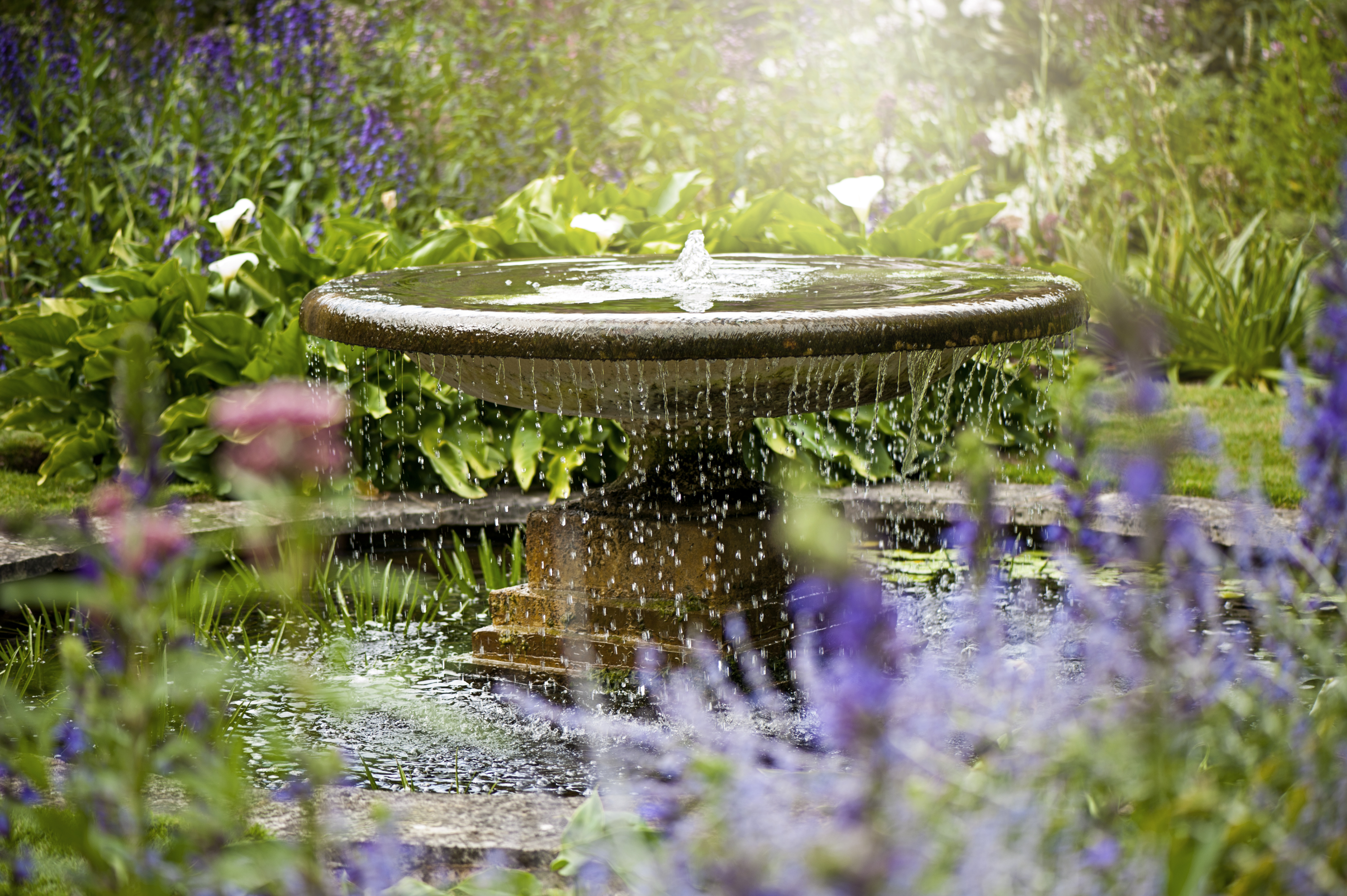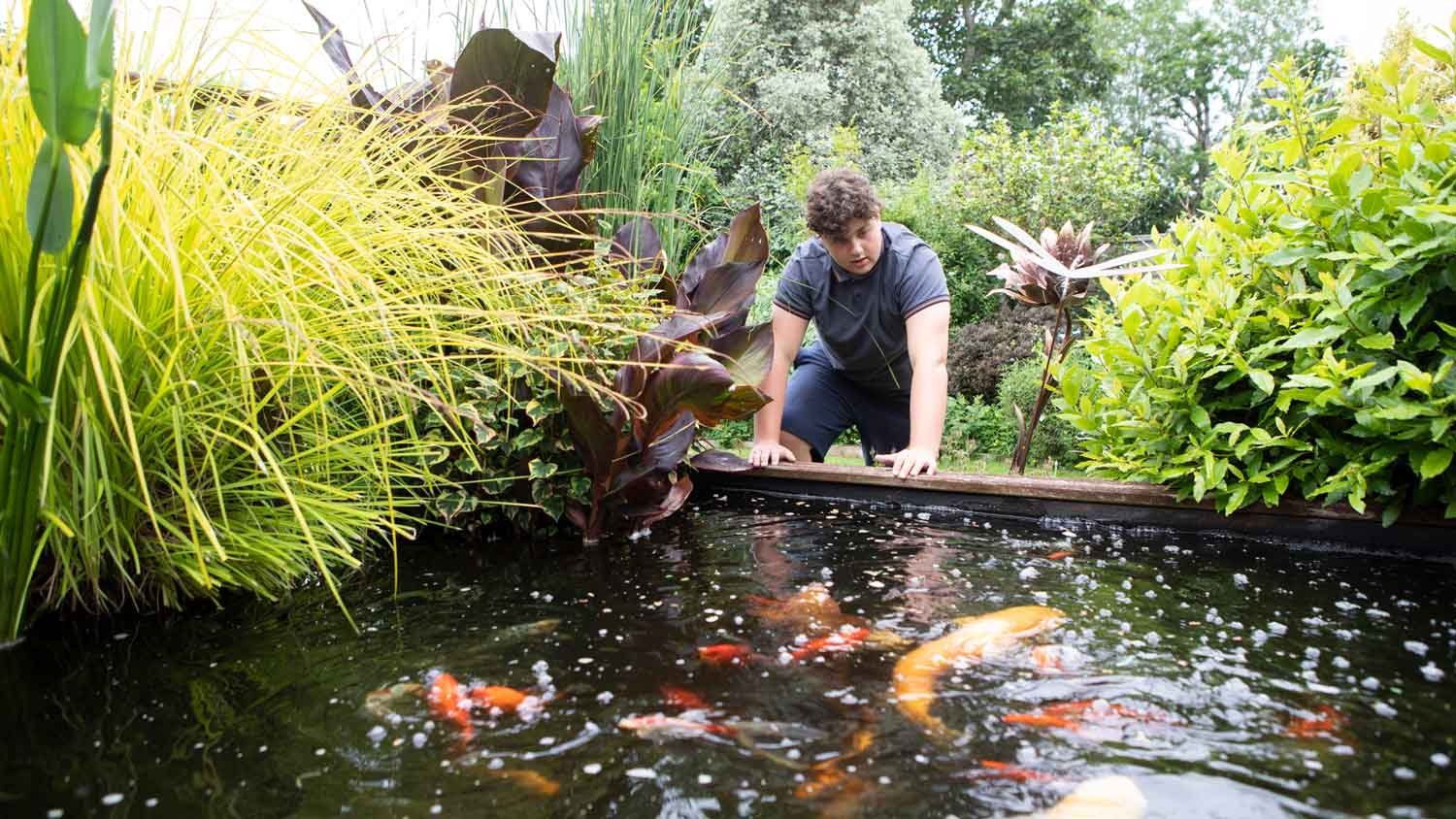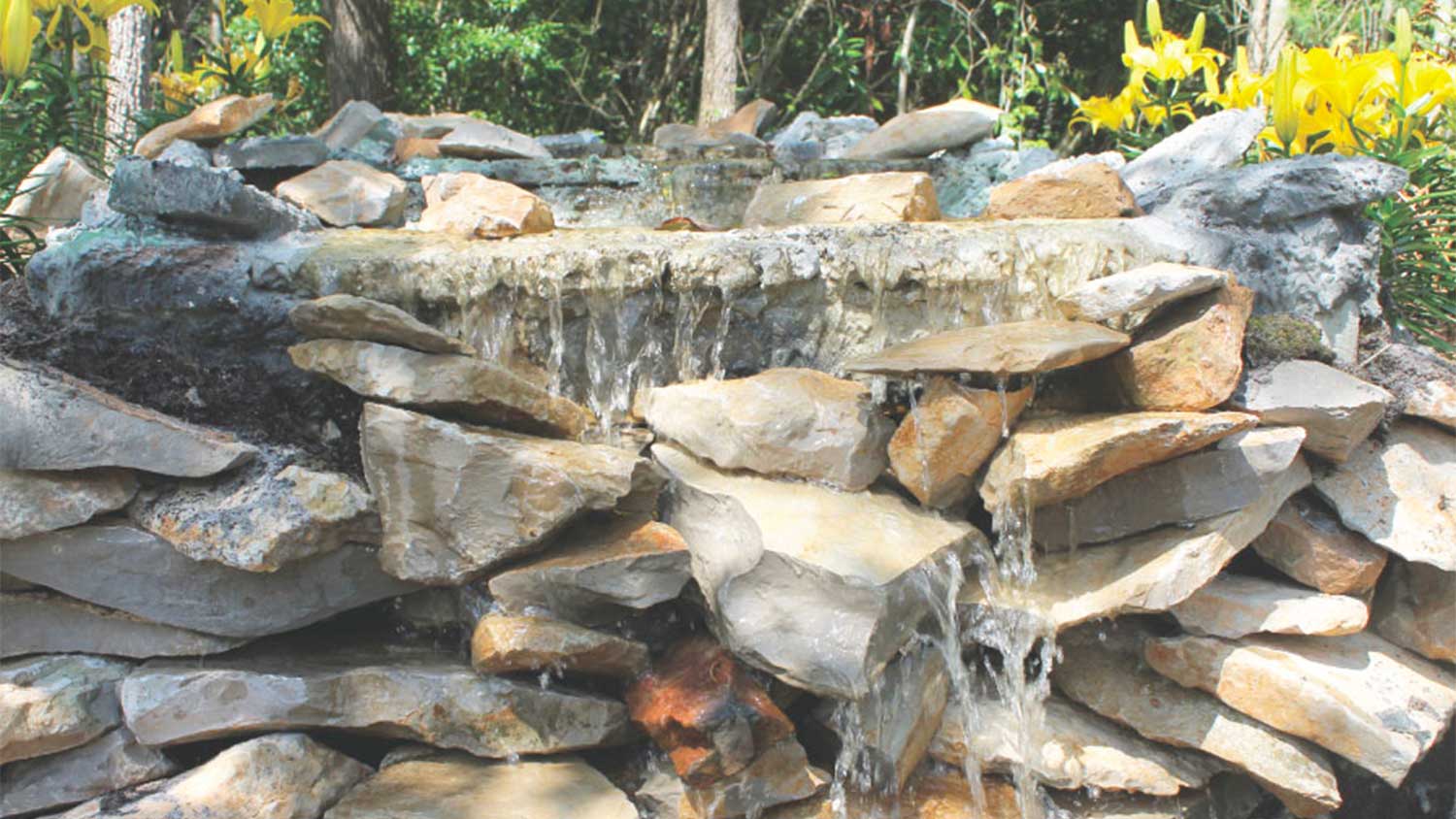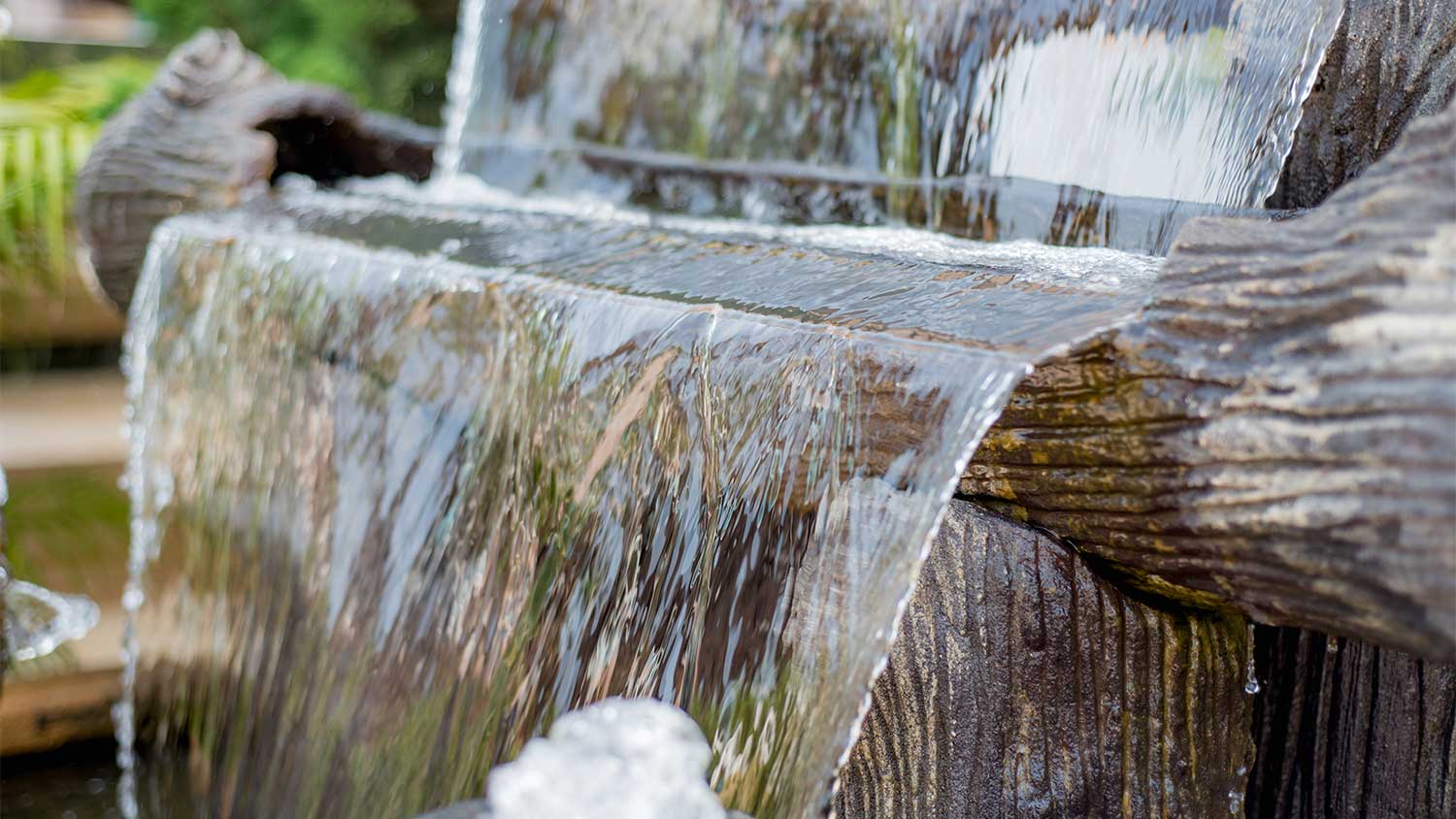
Discover how much it costs to build a pond. Learn about average prices, cost factors, and tips to plan your backyard pond project with confidence.
Fountain service costs depend on your project and location. Check with a local pro for your specific job.
Building a koi pond involves excavation, liner installation, filtration, and adding features tailored for koi fish.
The biggest cost drivers are pond size, depth, material selection, and extras like waterfalls or lighting, with prices often calculated per square foot.
A thoughtfully designed koi pond can increase curb appeal and enjoyment, offering a peaceful retreat in your yard.
Professional installation ensures your pond has proper filtration and structure, which supports healthy fish and long-term durability.
Permits, site prep, and ongoing maintenance all add to the project cost, so it’s wise to plan for these in your budget.
This article was created using automation technology and thoroughly fact-checked and edited by an Angi Editor in accordance with our AI policy.
Homeowners pay an average of $7,500 for a koi pond, with costs ranging from $1,500 for a small, basic pond to $25,000 or more for a large, custom design. Most koi pond installations are priced per project rather than per square foot; however, you can expect to pay between $14 and $50 per square foot, depending on the complexity and features.
Creating a koi pond adds tranquility and visual interest to your outdoor space, but costs can vary widely. This guide breaks down every factor, so you know what to expect before you build.
The size of a koi pond is one of the most significant factors in determining the cost of building it. The dimensions—length, width, and especially depth—directly impact the volume of materials, labor, and equipment needed.
A healthy koi pond should be at least three feet deep with a surface area of 100 square feet or more, as koi require space to thrive. Small backyard koi ponds might measure six by eight feet, while larger installations can exceed 15 by 20 feet.
Larger ponds require more excavation, bigger liners, and higher-capacity filtration systems, increasing both material and labor costs. While a small pond is more budget-friendly, it may limit the number of koi and require more frequent maintenance.
| Pond Size | Dimensions (Ft.) | Average Cost | Cost Range | Description |
|---|---|---|---|---|
| Small | 6x8x3 | $3,500 | $3,000–$6,000 | Best for limited space, supports a few koi |
| Medium | 10x15x3.5 | $7,000 | $6,000–$12,000 | Ideal for most backyards, supports several koi |
| Large | 15x20x4 | $15,000 | $12,000–$25,000 | Custom design, supports many koi, more features |
The construction method you choose has a big impact on how much it costs to build a koi pond. Popular types include preformed ponds, flexible liners, concrete, and natural/eco-ponds.
Preformed ponds are rigid shells, quick to install but limited in size and shape. Liner ponds use flexible material for custom shapes and sizes, offering a balance of affordability and flexibility. Concrete ponds are the most durable and customizable, but require more labor and expense. Natural or eco-ponds mimic natural ecosystems and often require additional landscaping and biological filtration.
| Pond Type | Description | Average Cost | Pros | Cons |
|---|---|---|---|---|
| Preformed | Rigid, molded plastic or fiberglass shell | $2,500 | Easy install, affordable | Limited size, less durable |
| Liner | Flexible liner (EPDM or PVC) | $7,000 | Custom shapes, good durability | May puncture, needs careful installation |
| Concrete | Reinforced, poured concrete structure | $18,000 | Long-lasting, very customizable | Expensive, lengthy install |
| Natural/eco | Integrated with plants, rocks, bio-filtration | $12,000 | Eco-friendly, blends with landscape | Higher maintenance, specialized design |
Where you live can significantly affect the cost of building a koi pond. Labor and material costs are higher in urban areas and coastal regions, while rural communities may see lower prices. Climate is another factor; colder regions may require deeper ponds and winterization features, increasing both upfront and ongoing costs.
Contractor availability and local demand also influence pricing. Some regions have more experienced pond builders, which can affect both quality and price.
Every koi pond project has unique cost drivers. Understanding these factors will help you plan and budget more accurately.
Professional installation often requires the assistance of several professionals, including landscapers, pond specialists, electricians, and plumbers. Standard hourly rates range from $50 to $150 per hour, depending on expertise and region. Some local koi pond contractors charge a flat project fee, especially for larger or custom ponds.
Labor accounts for 30% to 50% of your total project cost. Specialized features like waterfalls, bridges, or lighting may require additional skilled labor, increasing the price. Most installations take one to three weeks, with timelines extending for larger or more complex designs.
Permits are required for koi pond construction in many municipalities, especially for larger ponds or those with electrical and plumbing components. Permit fees can range from $50 to $400, depending on location and project size. Some areas also require inspections, which may add to the timeline and cost.
Skipping required permits can result in fines or forced removal, so always check with your local building department before starting.
Popular pond add-ons—like waterfalls, fountains, LED lighting, bridges, landscaping, and automatic fish feeders—can significantly increase how much it costs to build a koi pond. Each feature adds to both installation and long-term maintenance costs.
| Feature | Description | Average Cost | Cost Range |
|---|---|---|---|
| Waterfall | Circulates water, decorative | $2,000 | $1,000–$5,000 |
| Fountain | Adds movement, aeration | $1,200 | $500–$2,500 |
| LED Lighting | Underwater or perimeter lights | $600 | $300–$2,000 |
| Bridge | Small decorative crossing | $1,000 | $500–$3,000 |
| Landscaping | Plants, rocks, edging | $2,500 | $800–$6,000 |
| Auto Feeder | Dispenses fish food | $400 | $200–$1,000 |
Site complexity can increase your overall price. Sloped yards, rocky soil, tree roots, or poor drainage may require extra excavation and site prep. Accessibility for heavy equipment also affects labor and delivery fees.
You may also incur costs for debris removal, post-construction cleanup, or landscaping restoration. Custom pond designs or 3D renderings add design fees. Local authorities may charge inspection fees, and project delays due to weather or permitting can increase your final bill.
While the main installation is a big investment, there are several ongoing and potential extra costs with koi pond ownership.
Many pond liners, pumps, and major equipment come with warranties, often lasting one to five years. Extended warranties or service plans can be purchased for $100 to $500. While warranties help reduce long-term repair or replacement costs, carefully review what’s covered and any required maintenance.
Running a koi pond involves monthly expenses for electricity (to power pumps, filters, heaters, and lights), water usage, fish food, and water treatments. For most ponds, expect to spend between $30 and $100 per month, or $360 and $1,200 per year. Larger ponds or those with elaborate features may cost more, especially in extreme climates or during winter heating and summer aeration.
Routine maintenance keeps your koi pond healthy and attractive. Common tasks include cleaning, filter changes, water testing, and algae control. Annual pond maintenance costs average $500 to $2,000, depending on pond size and complexity. Hiring a professional service costs more but ensures expert care. Replacement parts—like pumps or UV lights—range from $100 to $600 and may need to be replaced every few years.
Significant landscaping improvements, including koi ponds, can impact your property taxes. Some regions offer tax incentives or rebates for eco-friendly features, such as natural filtration plants or solar-powered pumps. Always check with your local tax assessor to understand how your koi pond may affect your property’s tax assessment.
Standard homeowners insurance sometimes covers koi ponds, but additional liability or property coverage may be needed, especially for larger water features. Adding coverage costs $50 to $200 per year. Proper insurance protects you from risks like flooding, injuries, or fish loss due to equipment failure.
You could save between $50 and $150 per hour in labor by building a koi pond yourself. However, the project is complex, and most homeowners choose to hire a local koi pond installer. Where a DIYer would have to contend with excavating, choosing appropriate and compatible components, installation, and both plumbing and electrical tasks, pros have the tools, equipment, skills, and experience to perform the entire job correctly for successful results.
Installing a koi pond involves multiple precision tasks, and here’s why it’s best to hire a pro:
Experts ensure proper depth, grading, and liner installation to prevent leaks and erosion.
Pros properly size and install pumps, filters, and aeration systems, to keep your koi healthy.
They know how to design your pond for adequate water flow and circulation to avoid dead zones or algae blooms.
Installation experts have access to landscaping equipment and custom components.
DIY mistakes can lead to fish loss, structural failure, or costly repairs.
Professionals handle all components of the installation safely and in compliance with local code regulations.
They handle all permitting requirements and the subsequent inspections.
Reputable contractors offer warranties on materials and quality to help protect your investment.
If you wish to be a part of your koi pond installation, focus on these related tasks:
Research and select pond shapes, features, and landscaping ideas to share with your contractor.
Clear the work area of plants or weeds, debris, and other obstacles before work begins.
Assist with minor landscape finishing, such as adding surrounding plantings or other small features, with your specialist's approval.
Handle ongoing maintenance tasks after installation, including cleaning filters and testing water.
At some point, you may face repairs or need to replace your koi pond. Common issues include liner leaks, pump or filter failure, and structural cracks. Minor repairs often cost less than $1,000, while major repairs or complete pond replacement can run several thousand dollars.
If repair costs approach 50% of the cost of a new installation, replacement is often the better long-term investment. The age of your pond, warranty status, and the condition of key components all influence this decision.
| Issue/Scenario | Repair Cost | Recommendation |
|---|---|---|
| Liner leak | $300 | Repair unless widespread |
| Pump failure | $200 | Repair/replace pump only |
| Filter replacement | $150 | Repair/replace filter |
| Structural crack | $1,500 | Replace if severe |
| Multiple major issues | $2,500 | Replace pond |
A well-designed koi pond can increase your home’s curb appeal and create a unique selling point. Return on investment (ROI) varies—while koi ponds may not recoup their full cost at resale, they can attract buyers seeking distinctive landscaping.
ROI depends on pond quality, integration with the landscape, and neighborhood trends. Features that improve safety, efficiency, and accessibility can help boost value. Beyond financial return, koi ponds offer homeowners daily enjoyment and a tranquil space to relax.
To keep your koi pond project budget-friendly, consider the following tips:
Choose a smaller or simpler pond design to lower material and labor costs.
Use preformed pond kits for an easier and more affordable installation.
Install during the off-season when contractors may offer discounts.
Get multiple quotes from reputable pond builders.
Limit add-ons and luxury features to stay within budget.
Maintain your pond regularly to avoid costly repairs.
Choose pumps and filters with lower operating costs.
Design your pond for easy expansion or feature additions later.
Describe to your specialist the area where you want your pond, and whether it's going to be indoors or out.
Discuss the size and features you'd like to include in your koi pond.
Discuss with your contractor any access needs or concerns that may arise during the construction of your pond.
Ask about ongoing maintenance needs to protect the integrity of your pond and the health of your koi.
Home is the most important place on earth, which is why Angi has helped more than 150 million homeowners transform their houses into homes they adore. To help homeowners with their next project, Angi provides readers with the most accurate cost data and upholds strict editorial standards. We extensively research project costs to develop the pricing data you see, so you can make the best decisions for you and your home. We rely on reputable sources, including the U.S. Bureau of Labor Statistics, academic journals, market studies, and interviews with industry experts—all to ensure our prices reflect real-world projects.
Want to help us improve our cost data? Send us a recent project quote to [email protected]. Quotes and personal information will not be shared publicly.
From average costs to expert advice, get all the answers you need to get your job done.

Discover how much it costs to build a pond. Learn about average prices, cost factors, and tips to plan your backyard pond project with confidence.

Discover the average outdoor water fountain installation cost, including key price factors and tips to help you budget for your project.

Maintaining your backyard pond keeps it clean and in good condition. Learn how much pond maintenance costs and what factors can affect the price.

Discover how much it costs to stock a pond, including average prices, key cost factors, and tips to help homeowners plan their pond stocking project.

Outdoor water feature ideas are just as unique as your backyard itself. Check out how a waterfall, fountain, or koi pond can reimagine your property.

Discover how much it costs to install a pondless waterfall, including average prices, key cost factors, and tips to save on your water feature project.